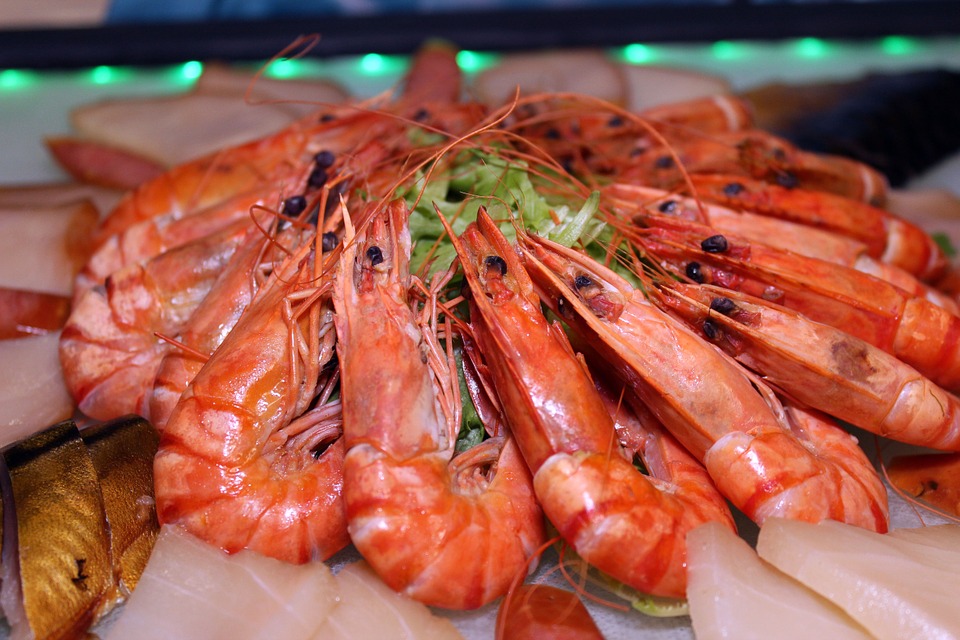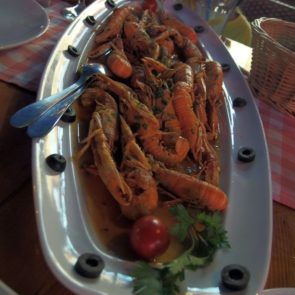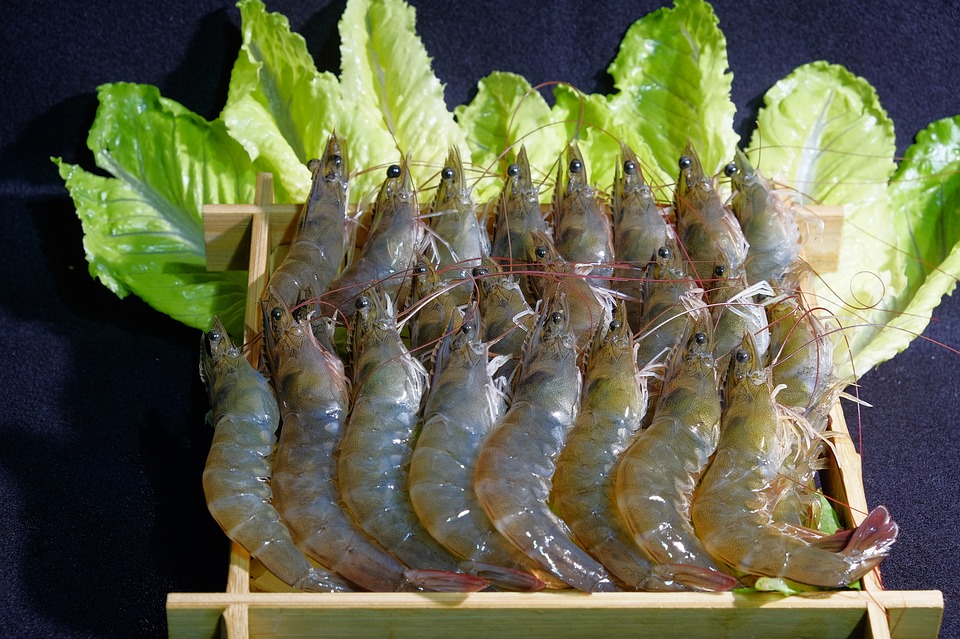This article will explore the intriguing question of whether cats can safely consume shrimp and delve into the world of seafood for feline companions. We will examine the nutritional value of shrimp and its potential benefits for cats, while also addressing any potential risks and considerations. We'll also provide a comprehensive guide on how to safely introduce seafood into your cat's diet, covering aspects like cooking methods, serving sizes, and potential allergies. Finally, we'll address common questions surrounding cats and seafood, providing insightful answers from a veterinary perspective.
Part 1: Understanding Shrimp and Its Nutritional Value for Cats

1.1: The Nutritional Profile of Shrimp
Shrimp is a lean protein source that offers a variety of essential nutrients for cats. These include:
- Protein: Crucial for muscle growth, development, and repair. Shrimp contains approximately 20% protein by weight, providing a valuable source of amino acids vital for feline health.
- Omega-3 Fatty Acids: Contribute to healthy skin and coat, as well as brain function. Shrimp is a good source of EPA and DHA, the two primary omega-3s that play a significant role in reducing inflammation and promoting overall well-being.
- Vitamin D: Plays a role in calcium absorption and bone health. While cats can synthesise Vitamin D from sunlight exposure, shrimp provides an additional source of this crucial nutrient, supporting strong bones and teeth.
- Selenium: An antioxidant that helps protect cells from damage. Shrimp is a good source of selenium, an essential mineral that plays a crucial role in protecting cells from oxidative stress, thereby contributing to overall health and longevity.
- Zinc: Essential for immune function and wound healing. Zinc is vital for a robust immune system, promoting healthy wound healing and supporting overall immune function in cats.
1.2: Potential Benefits of Shrimp for Cats
While cats are obligate carnivores, meaning their primary dietary needs are met by meat, some studies suggest that incorporating moderate amounts of seafood into their diets can provide additional benefits:
- Improved Skin and Coat Health: The Omega-3 fatty acids in shrimp can contribute to a healthy and shiny coat. The presence of EPA and DHA in shrimp promotes healthy skin, reduces inflammation, and contributes to a glossy, vibrant coat.
- Enhanced Brain Function: Omega-3s are also important for brain development and cognitive function. Omega-3 fatty acids are crucial for brain development, cognitive function, and memory, potentially contributing to a sharper mind in cats.
- Potential Immune System Support: Certain nutrients in shrimp may contribute to a robust immune system. The presence of zinc and selenium in shrimp may contribute to a strong immune response, helping cats fight off infections and maintain overall health.
Part 2: Risks and Considerations

2.1: Potential Allergic Reactions
Like any new food, cats can be allergic to shrimp. Signs of an allergic reaction can include:
- Skin rashes or hives: A common sign of an allergic reaction, these may appear anywhere on the cat's body.
- Gastrointestinal upset (vomiting or diarrhoea): Digestive upset is a frequent symptom, indicating that the cat's body is rejecting the shrimp protein.
- Sneezing or coughing: These respiratory symptoms can occur if the allergy affects the mucous membranes.
- Facial swelling: This can occur if the allergy affects the mouth and face, causing swelling around the eyes, nose, and lips.
2.2: Mercury Content
Shrimp, like many other seafood, can contain mercury. While small amounts of mercury are generally not harmful to cats, high levels can accumulate and lead to health problems. Mercury toxicity in cats can lead to neurological issues, including tremors, seizures, and impaired coordination. It is important to choose shrimp from reputable sources and limit the frequency of feeding.
2.3: Cooked vs. Raw Shrimp
Raw shrimp poses a greater risk of bacterial contamination, including Salmonella and Vibrio, which can cause severe illness in cats. Always ensure shrimp is thoroughly cooked before feeding it to your cat, reaching an internal temperature of at least 145 degrees Fahrenheit (63 degrees Celsius) to eliminate any bacteria and parasites.
2.4: Shell Considerations
The shell of shrimp can be a choking hazard for cats and can also cause digestive issues if ingested. It is always advisable to remove the shell before feeding shrimp to your cat.
Part 3: Introducing Seafood to Your Cat's Diet

3.1: Starting Slow and Observing
If you are considering introducing shrimp to your cat's diet, it is crucial to do so gradually and observe for any adverse reactions. Begin by offering a tiny amount of cooked, plain shrimp, no larger than a pea-sized portion, and monitor your cat for the following 24 hours. Look out for any signs of an allergic reaction, such as vomiting, diarrhoea, skin rash, or changes in behaviour.
3.2: Safe Cooking Methods
Shrimp should be cooked thoroughly to eliminate any bacteria and parasites. Steaming or poaching are preferred methods as they retain more nutrients compared to frying or grilling. Avoid using seasoning, butter, or sauces that can be harmful to cats. These can include garlic, onions, chives, and spices like nutmeg, which can be toxic to cats.
3.3: Appropriate Serving Sizes
The amount of shrimp you offer your cat should be a small portion, no more than a teaspoon or two, and only as an occasional treat. Excessive intake can lead to digestive upset or other health problems, particularly in cats prone to pancreatitis.
Part 4: FAQs
4.1: Can kittens eat shrimp?
It is generally not recommended to feed shrimp to kittens under six months old. Their digestive systems are still developing, and they may be more susceptible to digestive issues. It's best to stick to their kitten food formula during this crucial period.
4.2: Is it safe to feed shrimp bones to cats?
No, it is not safe to feed shrimp bones to cats. They can be a choking hazard and can cause internal damage if ingested. The sharp edges can puncture the digestive tract, leading to serious complications.
4.3: Can cats eat cooked shrimp with the shell?
While some cats may enjoy chewing on the shell, it is not recommended. The shell can be difficult to digest and can cause digestive issues. It can also pose a choking hazard and irritate the digestive system.
4.4: How often can I feed shrimp to my cat?
Shrimp should be offered as an occasional treat, no more than once or twice a week. Too frequent feeding can lead to an imbalance in their diet and potential health issues.
4.5: Can cats eat other types of seafood?
Yes, cats can eat other types of seafood such as salmon, tuna, and cod, but always ensure it is cooked thoroughly and free of bones. However, it is important to consult with your veterinarian before introducing any new foods to your cat's diet. They can advise on appropriate types, quantities, and frequency of feeding based on your cat's individual needs and sensitivities.
4.6: What should I do if my cat has an allergic reaction to shrimp?
If you suspect your cat is having an allergic reaction to shrimp, discontinue feeding it immediately and contact your veterinarian. They will be able to provide the best advice and treatment plan, potentially prescribing antihistamines or other medications to alleviate symptoms.
4.7: Can cats eat canned shrimp?
Canned shrimp is generally not recommended for cats due to the high sodium content, which can be harmful to their kidneys. Canned shrimp often contains added preservatives and flavourings that are not suitable for feline consumption. Stick to fresh or frozen shrimp that you cook yourself.
4.8: Is shrimp better than cat food for my cat?
While shrimp can be a healthy treat, it should not replace your cat's primary diet of high-quality commercial cat food. Cat food is specially formulated to meet all their nutritional needs, including essential vitamins, minerals, and taurine. Shrimp should be offered as a supplement, not a substitute for a balanced diet.
Conclusion
While shrimp can be a nutritious and enjoyable treat for cats, it is important to be aware of the potential risks and considerations. By introducing seafood gradually, cooking it properly, and monitoring your cat for any adverse reactions, you can safely enjoy the benefits of this delicious and nutritious seafood. Always remember to consult with your veterinarian for individualised advice and guidance on your cat's dietary needs.
Everyone is watching
-

Are Cat Ribs Flexible? Understanding Their Anatomy
CATS & KITTENSThis article delves into the fascinating world of feline anatomy, exploring the flexibility of cat ribs and ho...
-

Can Cats Eat Bananas? (Everything You Need to Know)
CATS & KITTENSThis article dives into the intriguing question of whether cats can safely enjoy the sweet, yellow fruit, bana...
-

Cat Lifespan: How Long Do Cats Live?
CATS & KITTENSThis comprehensive guide explores the factors influencing the lifespan of our feline companions, providing ins...
-

Can Cats Get COVID-19? What You Need to Know
CATS & KITTENSThis article will delve into the fascinating world of feline COVID-19 susceptibility. We'll explore whether ca...
-

Can Cats Eat Eggs? A Complete Guide to Egg Safety for Your Feline Friend
CATS & KITTENSWhen it comes to treating our furry companions, we all want to ensure we're doing what's best for them. Eggs...
